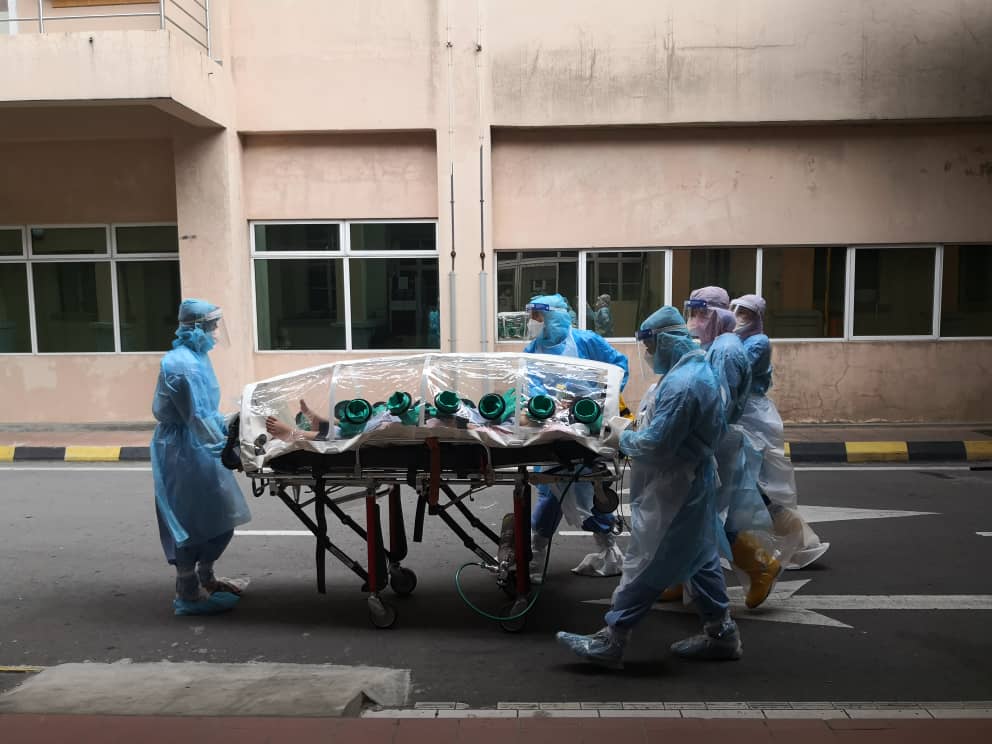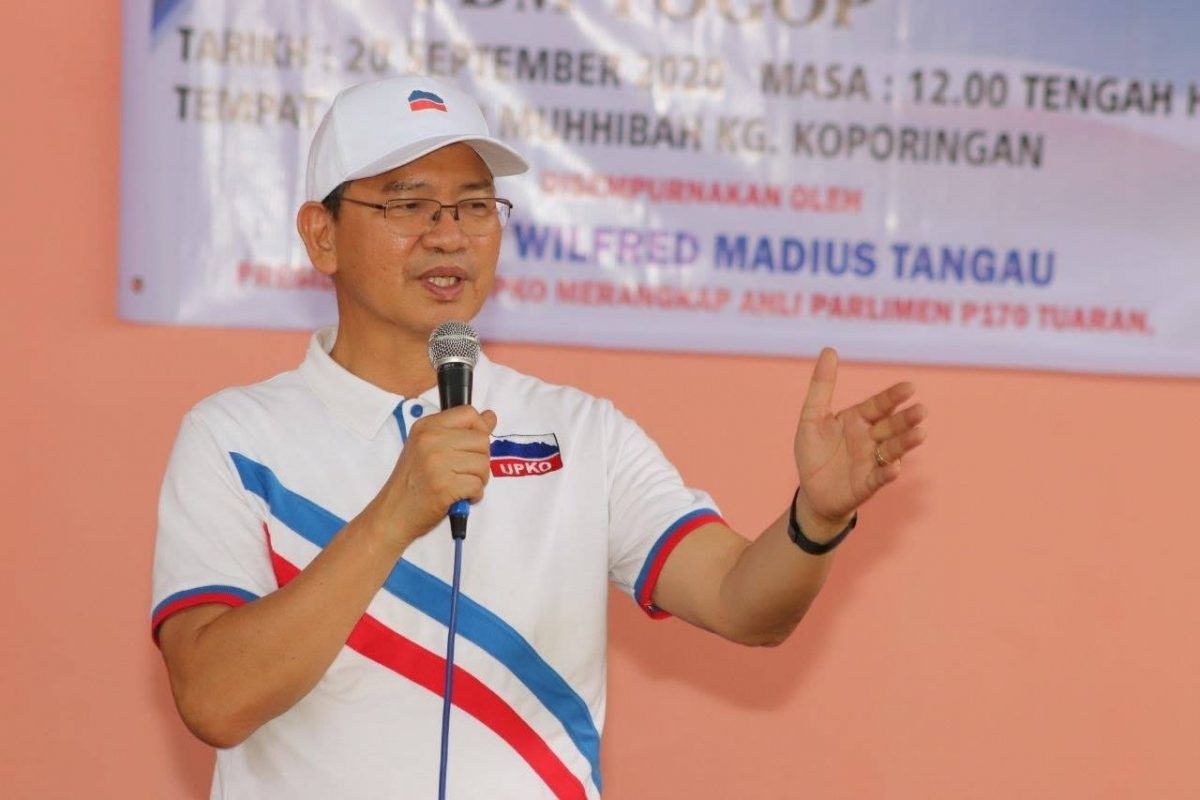KUALA LUMPUR, Nov 20 — The majority of Covid-19 samples sent from Sabah to be processed in peninsular Malaysia take up to five days to produce results, Dr Noor Azmi Ghazali said.
The deputy health minister was replying to Tuaran MP and former Science, Technology and Innovation Minister Wilfred Madius Tangau, who asked why Covid-19 test samples in Sabah take a long time — up till three to four days — to be processed.
“According to data from October 15 till November 11, 2020, there is a total of 78.5 per cent of samples from Sabah with a turnover time of less than five days,” Dr Noor Azmi told Tangau during a special chambers session in Parliament last Wednesday.
Turnover time refers to the time between a sample is taken (the date the sample-taking is registered in the field) and results are out (the date the test result is verified).
“Whereas, the lab turnaround time for the state of Sabah, which is from the time when samples are received in the lab till results are complete, take 24 to 48 hours for 90 per cent of samples.”
According to the deputy health minister, Sabah’s lab capacity is only able to process about 2,700 test samples a day, or 18,900 a week, and the balance samples will be sent to labs in peninsular Malaysia to be analysed.
Dr Noor Azmi said that logistics is one of the factors that influence the turnover time for test results.
“As we know, the distance in areas in Sabah like Lahad Datu, Tawau, and Kunak from Kota Kinabalu — where the labs for the PCR tests are located — is quite far, which is about 450km till 500km and it needs a certain period of time to bring the samples there,” the deputy minister said.
The three labs with RT-PCR testing capacity are the Public Health Laboratory, Queen Elizabeth Hospital, and Universiti Malaysia Sabah, which are all located in the state capital of Kota Kinabalu.
Dr Noor Azmi said that the total number of samples taken for RT-PCR in Sabah has also increased from 3,500 a week in September to 25,000 to 40,000 samples a week in October and November.
Health director-general Dr Noor Hisham Abdullah said at a press conference last Wednesday that the daily RT-PCR test capacity in three labs in Sabah on November 17 was 2,700 tests, but the labs were running at 119 per cent processing 3,200 RT-PCR samples on November 17.
“Until November 9, a total of 380,850 PCR tests and 137,429 tests RTK-Ag tests have been carried out in Sabah,” Dr Noor Azmi said in Parliament.
On the other hand, the number of antigen rapid tests done in all facilities in Sabah on an average is between 3,000 and 5,000 a day.
“Detection of positive cases at a faster rate will help ease the investigation, contact detection, and control of this outbreak.”
Tangau said while waiting for samples to be processed, some individuals still walk around and spread the virus. The UPKO president urged the government to increase testing capacity in Sabah by increasing the number of staff and equipment in Sabah labs.
Dr Noor Azmi replied by saying that the government is in the process of developing two more labs in Sabah — a molecular lab in Tawau and a modular lab in Lahad Datu.
“These two labs are predicted to complete in the nearest time with a capacity of about 200 Covid-19 PCR samples,” the Bagan Serai MP said.
Sabah Still At Risk Of Becoming Wuhan or Milan

Tangau, during his debate on Budget 2021 on Wednesday, also asked the government to transfer half of the Special Affairs Department’s (JASA) RM85.5 million allocation to Sabah, whose Covid-19 crisis he said was still at risk of turning into like those in Wuhan, China, where the coronavirus was first reported, or Milan, Italy.
He asked the government to abolish the JASA allocation and allocate it according to individual states that require the money for their state development.
“Tuaran asks that 50 per cent or RM42.25 million from the allocation specifically be given to Sabah, as Sabah is still at risk in becoming Wuhan or Milan for Malaysia,” the UPKO lawmaker said.
Tangau said six to eight weeks since September, 49 per cent of the total Covid-19 cases, 34 per cent of deaths, and 56 per cent of all active cases in Malaysia were from Sabah.
He explained how the funding allocation will be of use in Sabah, whose health care facilities were far behind compared to other states and regions in Malaysia.
“For example, Sabah has the lowest number of hospital beds; too few professional staff to operate the existing health infrastructure; and receive allocations to upgrade the lowest health,” the Tuaran MP told the Dewan Rakyat Wednesday.
“So far, Sabah has not been given priority in health allocations.”
Although the RM42.25 million allocation may be small, the allocation is enough to buy Covid-19 testing equipment that is estimated to cost RM10 million per equipment. This can help to resolve the problems in sending samples to Peninsular Malaysia everyday.
“I understand that currently, the state health department is more focused on procuring consumables like PPE (personal protective equipment) and the like. Asked for RM5 million allocation, they gave RM10 million, but not as generous in buying assets like equipment, constructing labs, or hiring contract professionals for Sabah,” Tangau said.
Besides that, he said part of the money could go into research to identify those in the community who are affected by the Covid-19 pandemic.
“Research findings can be used to summarise the assistance programmes implemented on a targeted basis. “
The Tuaran MP also pointed out how the special federal grant given to Sabah has been reduced from RM53.4 million per year under the previous Pakatan Harapan federal administration to RM26.7 million under the Perikatan Nasional administration.








